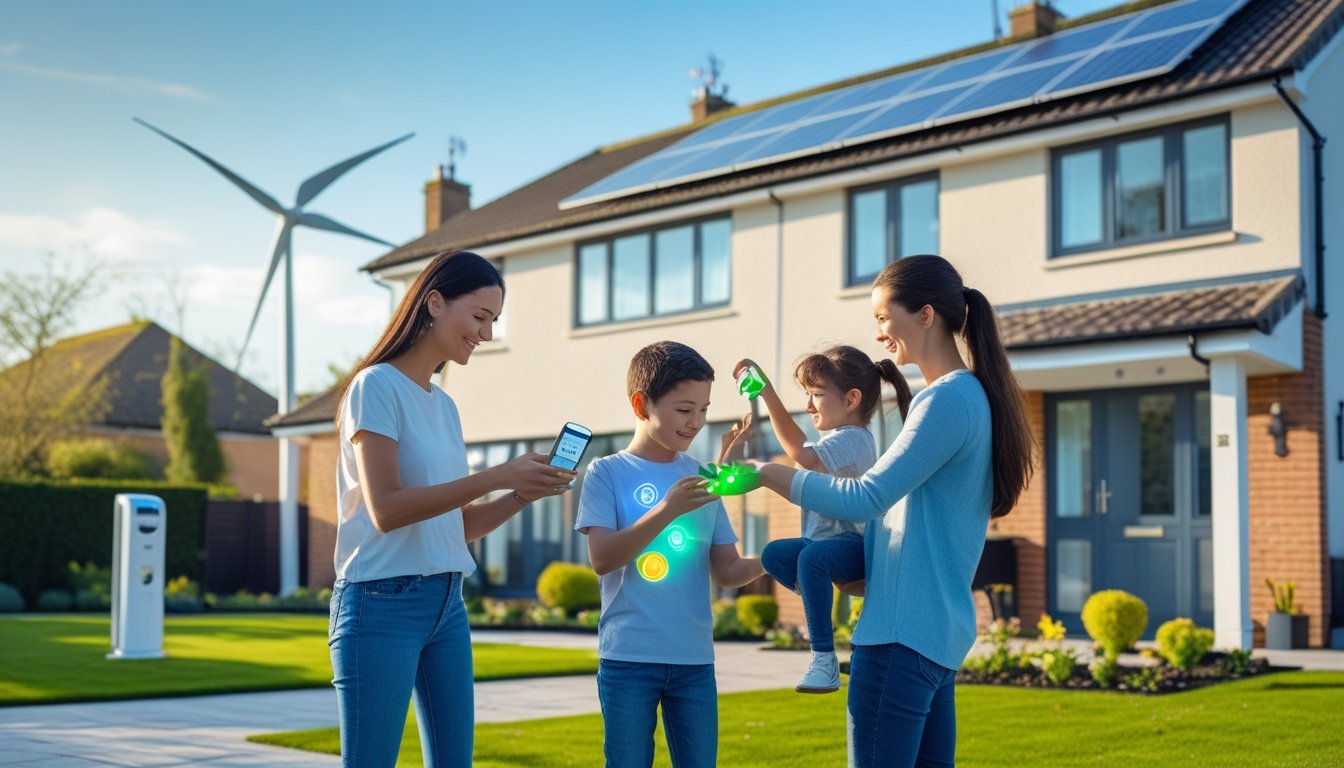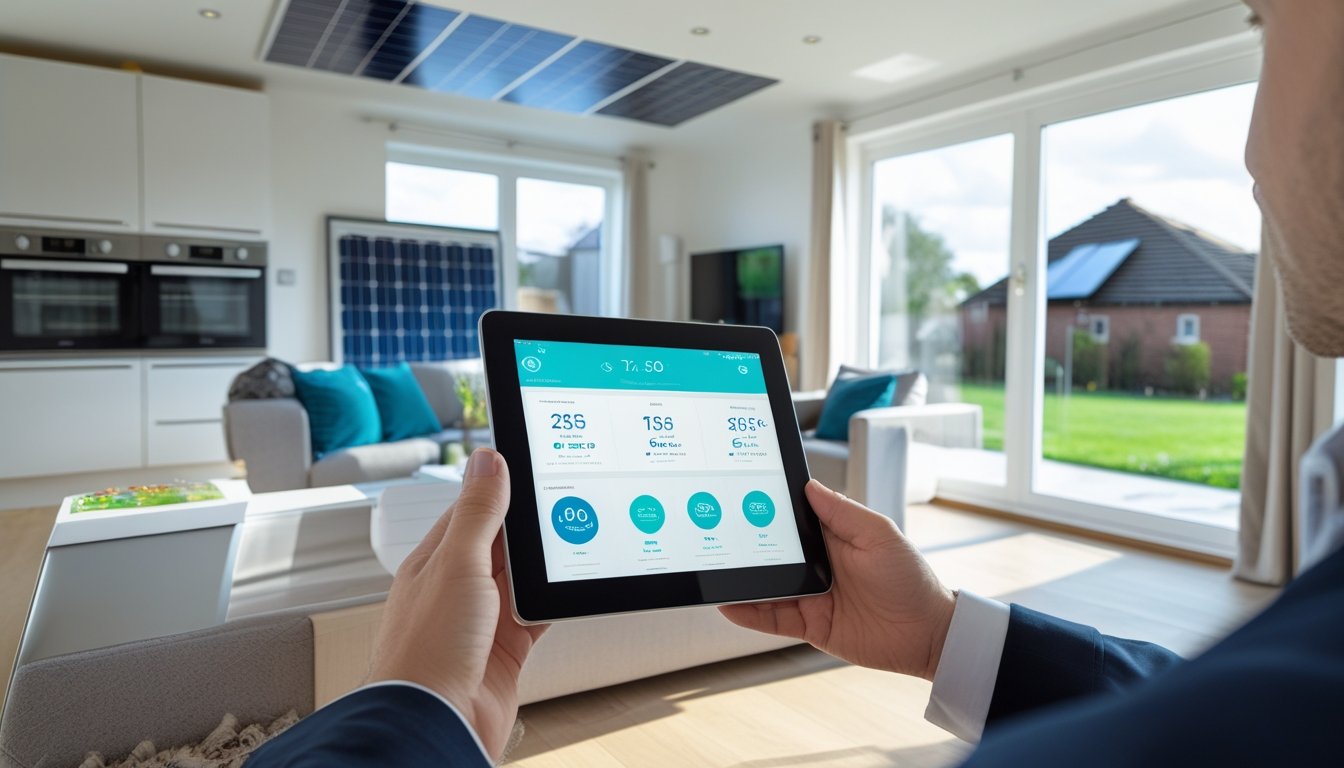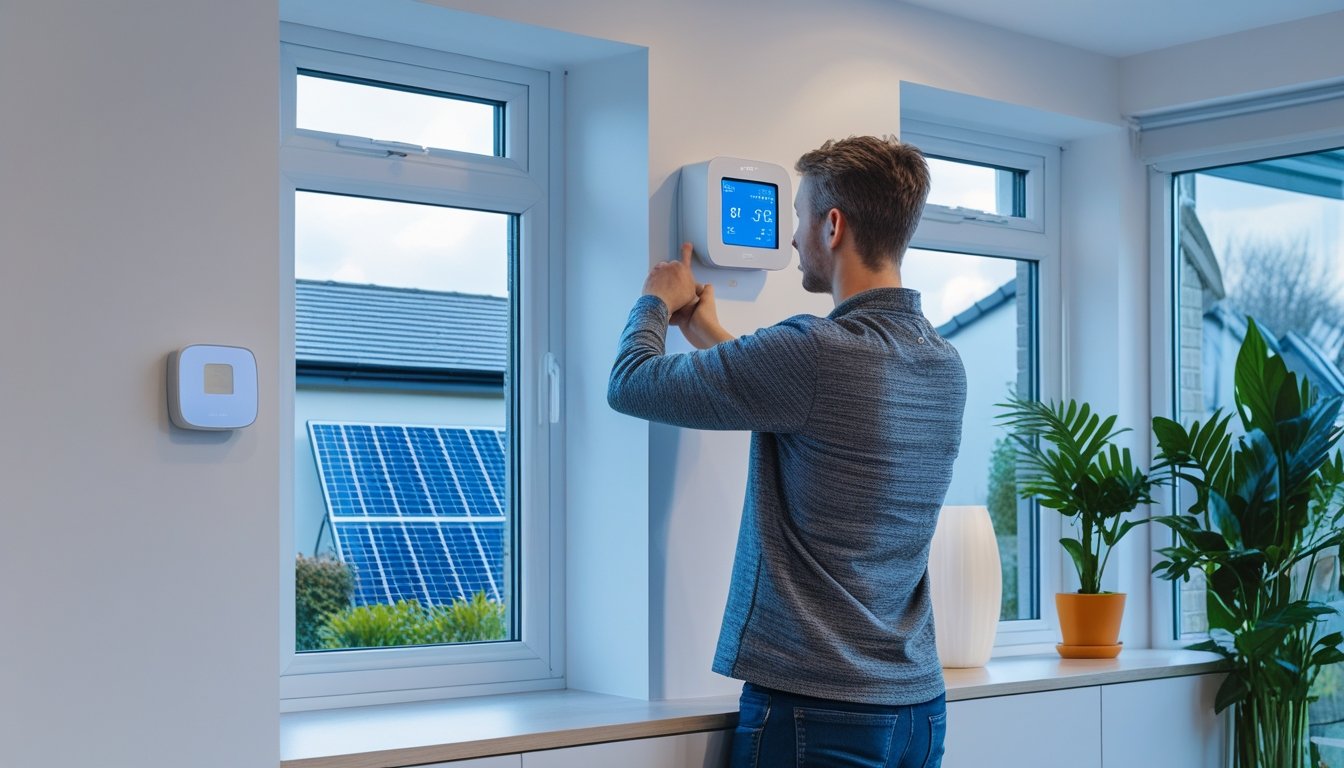Late updated: 10 Oct 2025 08:10
Written by: Eleanor Hartman
Innovative Approaches To Reducing UK Home Energy Waste: Effective Strategies
Reducing energy waste in UK homes isn't just about cutting costs; it's about adopting innovative solutions for a sustainable future. As energy consumption in households continues to rise, finding effective ways to minimise waste becomes crucial. By embracing smart technology and rethinking our energy habits, we can transform our homes into models of efficiency and sustainability.

Increasing adoption of renewable energy sources, like biogas, plays a pivotal role in addressing both energy waste and carbon emissions. These technologies not only help power homes more efficiently but also offer homeowners significant reductions in their carbon footprint. Aligning our strategies with emerging trends ensures we stay ahead in the quest for energy efficiency.
Innovative waste reduction strategies provide practical avenues for reducing household energy use. Projects focusing on more efficient recycling and creative waste management underscore the shift towards sustainable lifestyles. Through such approaches, combined with government support for eco-friendly renovations, homeowners have more tools than ever to make impactful changes.
Key Takeaways
- Smart technologies can transform homes into efficient energy models.
- Utilising renewable energies like biogas reduces carbon footprint.
- Effective waste strategies enhance sustainability in households.
Core Strategies for Reducing UK Home Energy Waste
To effectively reduce energy waste in UK households, we must adopt a blend of technological and strategic interventions. Key approaches include harnessing renewable energy, improving insulation, modernising heating systems, and leveraging smart technologies. Each strategy aims to effectively decrease energy demand and enhance efficiency.
Adopting Renewable Energy Solutions
Integrating renewable energy sources in our homes represents a significant step towards reducing energy waste. Solar panels can be installed on rooftops to harness sunlight, offering a sustainable alternative to traditional electricity sources. By utilising wind or hydro power where feasible, we can reduce the reliance on fossil fuels.
Not only do these solutions cut carbon emissions, but they also offer long-term cost savings. In particular, generating electricity through renewables can substantially lower energy bills over time. Additionally, community-focused initiatives like district heating can distribute heat efficiently, further lowering energy consumption and waste. Harnessing these solutions empowers us to contribute to a cleaner environment while also reducing operating costs.
Enhancing Insulation and Building Materials
Effective insulation is crucial for minimising energy waste in our homes. By using high-quality wall insulation and double glazing, we can significantly reduce heat loss. These improvements create a more stable indoor temperature, reducing the need for heating and cooling.
Materials such as cellulose, fibreglass, and foam boards are excellent options for insulating walls and roofs. Advanced materials and technologies may initially require an investment, but the outcome results in substantial energy savings. Proper insulation is not just about comfort; it’s essential for enhancing overall energy efficiency. A well-insulated home maintains warmth during winter and stays cooler in the summer, reducing reliance on heating and cooling systems, and thus cutting down energy expenditure.
Upgrading Heating and Cooling Systems
Modernising our heating and cooling systems is vital for reducing energy waste. Utilising heat pumps, for instance, can improve efficiency significantly. They transfer heat from one place to another rather than directly heating or cooling air, which uses less energy than traditional systems.
Incorporating energy-efficient cooling systems and using programmable thermostats helps regulate indoor climate control more effectively. Implementing district heating, where practical, centralises heat production and distributes it to various homes, ensuring more efficient energy use. Selecting technologies that offer both maximum comfort and minimum energy consumption is key to reducing home energy waste.
Implementing Smart Home Technologies
Smart home technologies stand at the forefront of reducing energy waste. Devices that automate and optimise energy use, like smart thermostats and lighting systems, make it easier to manage consumption. By adjusting settings based on occupancy and time, we can minimise unnecessary energy use.
Additionally, integrating energy monitoring systems gives us insights into usage patterns, helping us identify areas for improvement. These technologies not only offer convenience but also empower us to take control of our energy consumption. Implementing smart solutions enables us to optimise energy use, reduce waste, and ultimately lower carbon footprints.
Advanced Approaches and Innovations in Energy Efficiency

As we explore the evolution of energy efficiency, it's important to focus on the technological strides in automation, smart appliances, and behavioural shifts. These innovations are pivotal in reducing energy consumption and carbon footprints in UK homes, enhancing sustainability, and optimising the use of resources.
Leveraging Automation and Data-Driven Energy Management
In today's digital age, smart homes equipped with automation systems play a vital role in energy efficiency. These homes use smart meters and sensors to monitor and control energy use in real-time. Automation allows homeowners to remotely manage appliances and adjust settings for heating and cooling systems, ensuring optimal energy usage.
By analysing data, these systems can predict energy needs and suggest efficient ways to conserve power. Data-driven insights optimise energy distribution, reducing waste and enhancing sustainability. The integration of smart grids with renewable energy sources further boosts efficiency by balancing load demand with supply. This technology empowers us to make informed decisions, promoting a lower carbon footprint.
Utilising Energy-Efficient Appliances and Lighting
Energy-efficient appliances and lighting are essential elements in reducing home energy waste. Modern appliances such as refrigerators and washing machines come with high energy ratings, indicating their efficiency. These appliances consume less power while maintaining performance standards.
Switching to LED bulbs is another simple yet effective change. LED lights use significantly less energy compared to conventional incandescent bulbs and have a longer lifespan, drastically lowering energy consumption. Efficient appliances and lighting not only cut down electricity bills but also contribute to a more sustainable living environment by minimising overall energy demand.
Behavioural Changes and Real-Time Monitoring
Adopting behavioural changes complemented by real-time monitoring can significantly impact energy efficiency. Awareness campaigns and educational initiatives highlight the importance of simple actions, like turning off unused appliances and utilising natural light during the day.
Real-time monitoring technologies, such as smart meters, provide insights into household energy use patterns. These devices allow us to track our energy consumption and make immediate adjustments to improve efficiency. By understanding these patterns, we can change our habits effectively, leading to substantial energy savings and a reduced carbon footprint. Encouraging energy-saving habits is just as crucial as employing advanced technologies.
Frequently Asked Questions

Exploring innovative strategies to reduce energy waste in UK homes often leads us to consider improved insulation, smart technologies, and the use of renewable energy sources. Understanding how government incentives and community schemes can assist these efforts further empowers us in this endeavour.
What are the most effective strategies for improving home insulation?
Effective home insulation can significantly cut down on energy waste. Key strategies include installing cavity wall insulation, loft insulation, and double glazing. These methods help maintain the desired temperature indoors, reducing the need for excessive heating or cooling.
How can smart technology contribute to energy saving in British homes?
Smart technology offers real-time insights into energy usage, enabling homeowners to identify waste. Devices such as smart meters and energy-efficient appliances automate usage patterns and provide data to optimise consumption. This integration not only helps in cutting energy costs but also supports a more sustainable lifestyle.
What are the benefits of using renewable energy sources in domestic settings?
Renewable energy sources, like solar panels and wind turbines, provide sustainable power alternatives that can substantially lower household carbon footprints. They reduce reliance on non-renewable energy, thus offering an environmentally friendly and often cost-effective solution for powering homes.
What government incentives are available to support energy efficiency upgrades in homes?
The UK government offers various incentives to encourage energy efficiency. Programmes like the Green Homes Grant provide financial assistance for home improvements such as insulation and renewable energy installations. These initiatives not only lower costs but also promote broader participation in reducing energy waste.
How does behavioural change impact household energy consumption?
Behavioural changes play a crucial role in conserving energy. Simple actions, such as switching off lights, reducing heating usage, and unplugging devices when not in use, can collectively have a significant impact. Being mindful of these everyday habits helps us reduce unnecessary energy expenditure.
In what ways can community schemes support individual efforts to reduce energy waste?
Community schemes create a collaborative approach to energy reduction. Initiatives like local energy cooperatives or neighbourhood insulation programmes can provide resources and shared knowledge. By working together, communities can amplify their impact, making energy-saving measures more accessible and effective.